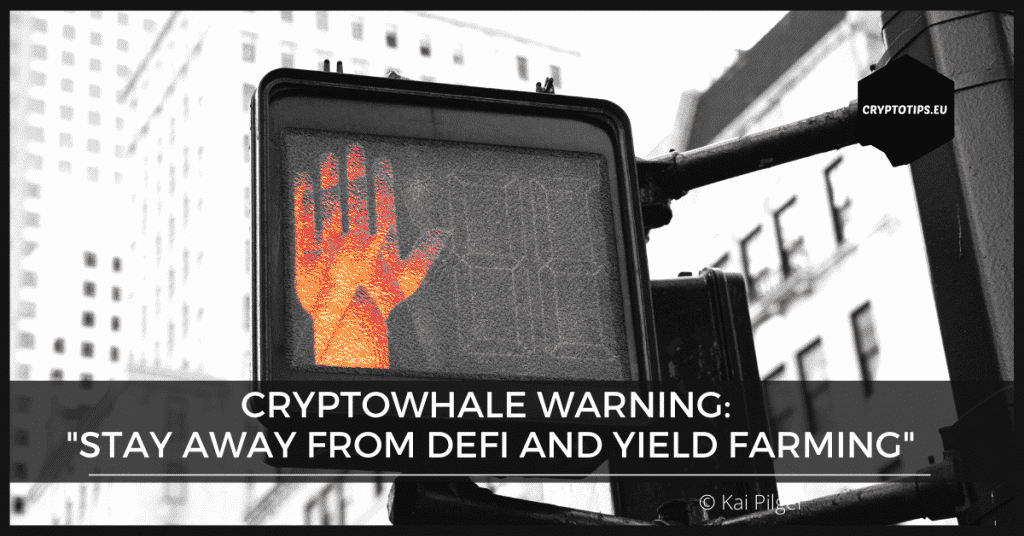CryptoWhale warning: “Stay away from DeFi and yield farming”
Last Updated on 28 October 2020 by CryptoTips.eu
Another day, another exit scam in the DeFi cryptosphere apparently. As my colleagues wrote earlier this week, a DeFi token named Harvest Finance was “hacked” for a value of $24,000,000. Upon closer look though, it seems to be another “exit scam” by an anonymous development team. At least that is what the all-seeing-eye of CryptoWhale claims.
He said:
This DeFi scam token (Harvest Finance) with an anonymous team was just “hacked” for $24,000,000. Are people really still falling for these scams? These hacks are 100% fake, and ways for the devs to steal millions without taking blame.
Stay out of DeFi coins
The anonymous Twitter account giving out free in-depth crypto and stock research has proved to be a goldmine for information in the past, and thus it might just be time to listen once again. Many investors have urged others to stay out of the DeFi coins, which are unregulated and, as some claim, scams.
🛠️ A yield farming protocol @harvest_finance has been hack
— 🌐 DeFi News 🌐 (@Definews_Info) October 26, 2020
🛠️ The culprit takes $24 million from #Harvest and then returned $2.5 million to the protocol without no valid reason
➡️ INFOhttps://t.co/hppUd6kN7z#DeFi #DefiNews #SmartLiquidity#HARVEST_FINANCE_HACK
This time round, the alleged attacker used a so-called flash loan (which allowed him to take on massive leverage without any downside) in order to manipulate the price of the DeFi coin for his own profit.
DeFi Scam Token Checklist:
— CryptoWhale (@CryptoWhale) October 26, 2020
🚩Falsely claim they’ve been audited many times.
🚩Was recently created (only a few months old)
🚩Named after food, or a meme
🚩Promises high returns
🚩Anonymous dev team
🚩Fake partnerships
🚩Stolen white paper
🚩No real utility
CryptoWhale was clearly infuriated by the latest “hack’ which he found quite suspicious, and therefore provided those interested in learning with a DeFi Scam Token Checklist.
Firstly, make sure that you pay attention when the company says they’ve been audited many times in the past. In the whole Sushi saga, this was the red flag that gave it all away just before the founder “exit scammed” the coin. Secondly, make sure the coin has some history behind it. Anything only a few days old could be a scam.
Thirdly, any coin which is named after a food or a meme is highly suspicious. For previous examples, see Booby Coin, Pumpkin Coin, Humus Finance, PooStain Coin, Autistic Finance, ChadCoin, Sushi Coin, Burger Chain and WAP Finance (yes, someone actually made a coin like the Cardi B song).
Lastly, always do your own research before investing. Best of luck.
